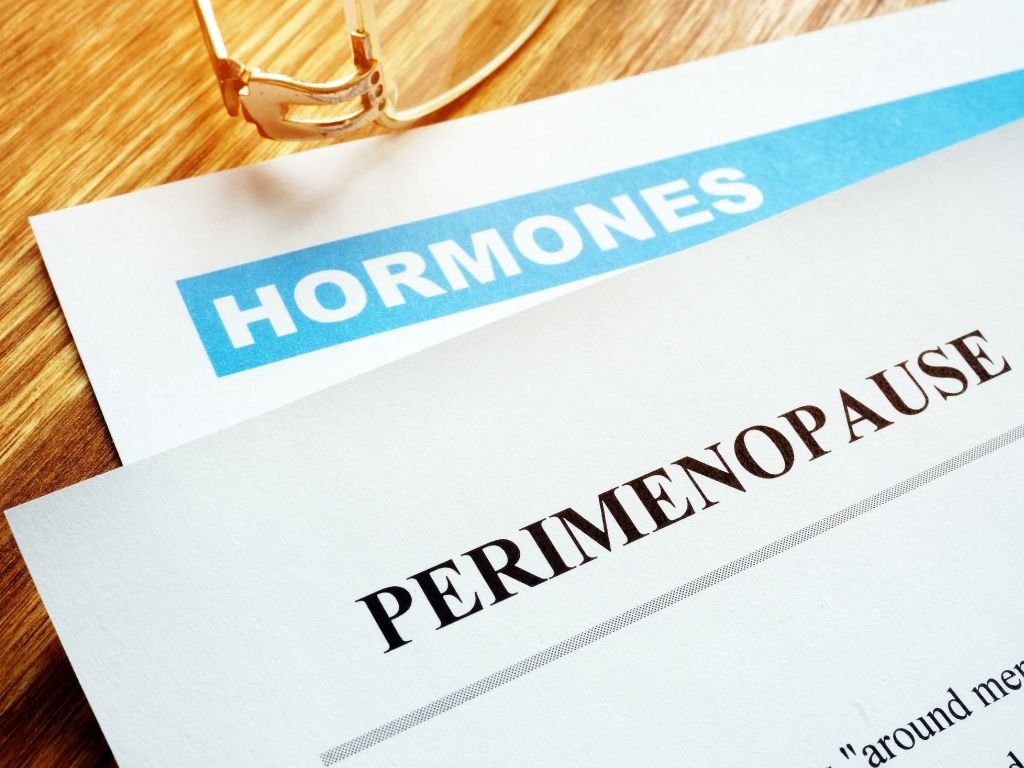
Author: Bob Brensel | President, Pharmacist | ScriptWorks
Bob Brensel, RPh, earned his Pharmacy Degree at University of the Pacific in Stockton, California in 1980. Former California Pharmacists Association’s Award Winner for Recognition of Outstanding Achievement in Compounding Pharmacy. Read More →
A Look Into Perimenopausal Symptoms and Solutions
Did you know that females are more than twice as likely as males to be afflicted by mood disorders?
In fact, studies have revealed that women are more likely to experience mood disturbances, anxiety, and depression during times of hormonal flux, such as puberty, menopause, perimenstrual, and post-partum periods.
What is Perimenopause?
Perimenopause, the transition into menopause, can cause mood changes and may increase feelings of sadness and anxiety.

Other symptoms of perimenopause, such as hot flashes, may also cause sleep problems. Difficulty sleeping can make it 10 times more likely for a person to experience depression.
People with a history of depression may also be more likely to experience depression during perimenopause.
Clinical recovery from depression can happen during the postpartum period, perimenopause, and post-menopause following restoration of stable estradiol levels. During perimenopause Estrogen and Progesterone levels fall which can trigger mood changes and cause episodes of depression.
Hormone therapy may contribute to alleviating menopause-related depressive symptoms.
Hormone Levels and Compounded Solutions

If you’re experiencing signs of depression, you should see your doctor, and it’s a good idea to have your hormones evaluated.
Another option is to pick up a saliva hormone test kit at ScriptWorks. Easily & conveniently do the test at home, and then put the shipping label on it and drop the test in a UPS box. Your results are usually ready in a week, and one of our clinical pharmacists can go over the results with you.
Evidence shows a lot of connections between mood and psychiatric disorders and women’s hormone levels. There are many studies that connect Estradiol, Progesterone, DHEA, Testosterone, Cortisol, and Thyroid levels with anxiety and mood disorders.
Between 15% and 50% of women experience depressive symptoms during the menopausal transition; in 15% to 30% of perimenopausal women, they are severe enough to be regarded as a depressive disorder.
If you’re thinking that you might be suffering from depression-related symptoms, like insomnia, sadness, or anxiety, you should consider getting your hormone levels checked.
Get in Touch with the Bay Area’s Premier Compounding Pharmacy
ScriptWorks compounds many different dosage forms that contain hormones such as Estradiol, Estriol, Progesterone, DHEA, Testosterone, Cortisol, and Thyroid. These can be obtained upon prescription from your doctor.
Call us for a free, 15-minute hormone consultation!
(925) 934-4400, Monday – Friday, 9:00 AM – 5:00 PM

References:
- Bekker, M., et al., “Anxiety disorders: sex differences in prevalence, degree, and background, but gender-neutral treatment,” Gend Med 2007; 4(Suppl B):S178–S193.
- Ahokas, A., et al., “Estrogen deficiency in severe postpartum depression: successful treatment with sublingual physiologic 17beta-estradiol: a preliminary study,” Jour Clin Psychiatry 2001; 62:332–36.
- Douma, S., et al., “Estrogen-related mood disorders: reproductive life cycle factors,” ANS Adv Nurs Sci 2005; 28:364–75.
- Malhi, G., et al., “Depression,” Lancet 2018; 392(10161):2200-2312.
